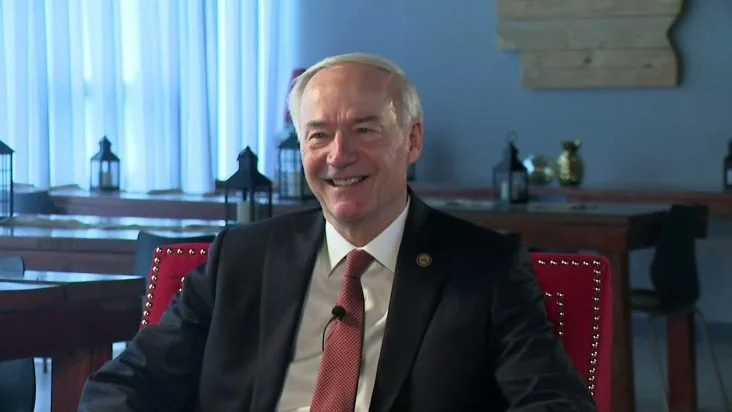LITTLE ROCK – COVID-19 has highlighted some of the shortcomings of our broadband connectivity, but the pandemic also has created opportunities for us to accelerate our expansion of internet service, which I’d like to talk about today.
Earlier this year, I created a steering committee to study our needs and recommend the best use of federal money that is returning to the state through the Coronavirus Aid, Relief and Economic Security Act, also known as the CARES Act. The members of the committee recognized that many rural communities in our state are in dire need of better access to high-speed internet.
Senate President Jim Hendren and House Speaker Matthew Shepherd of the General Assembly advocated for the expenditure of $100 million for Arkansas Rural Connect, a great program to assist our local communities in expanding internet access.
The coronavirus has limited many of our normal activities, such as attending school and visiting a doctor. The internet has allowed us to adapt to the difficulties. Without effective broadband, many Arkansans would not be able to adapt and access distance learning or keep a telemedicine appointment with a doctor.
The state has made grants to seven companies: $1.6 million to Arkansas Telephone Company to serve parts of Fairfield Bay; $1.9 million to Pinnacle Communications for parts of Ozark; $2 million to CableSouth Media 3 to serve Lonoke and $2 million for Hamburg; $449,000 was granted to Premier Holdings for Nashville; Hillbilly Wireless will receive $497,000 for Cotton Plant and another $804,000 for Cave City. Magazine Telephone Company will receive a little more than a million dollars in non-CARES Act money for Magazine.
In another of our ongoing efforts to expand broadband service, the legislature created the Rural Broadband I.D. Expenses Trust Fund. This money is being awarded as one-time grants to help service providers meet rigorous requirements for due diligence for large federal grant programs with the United States Department of Agriculture and the Federal Communications Commission.
Rural Broadband I.D. is based at UAMS’s Office of Digital Health and Innovation. With Rural Broadband I.D., we are deploying a broader and more detailed strategy for expanding broadband across the most rural parts of our state.
Broadband service must download at a rate of at least 25 megabits per second and upload at 3 megabits per second, which would load a normal song in one second and a two-hour movie in 10 minutes.
Broadband at these speeds will level the playing field as we compete on a global scale. Arkansans in rural communities will have access to the same information and services as people in Fort Smith and Fayetteville.











